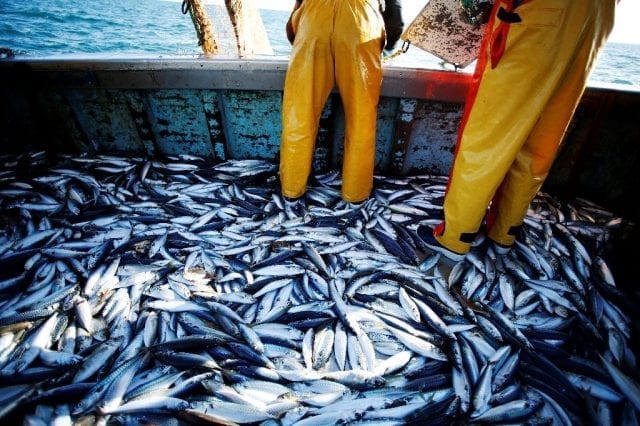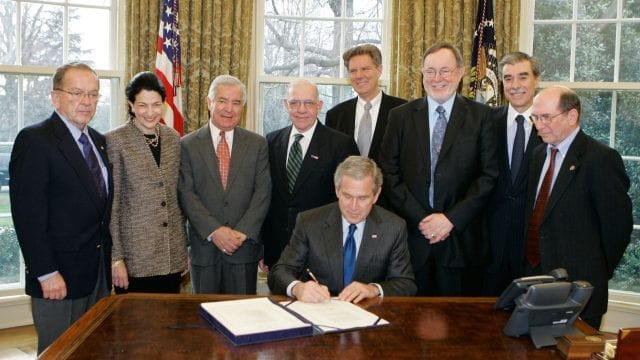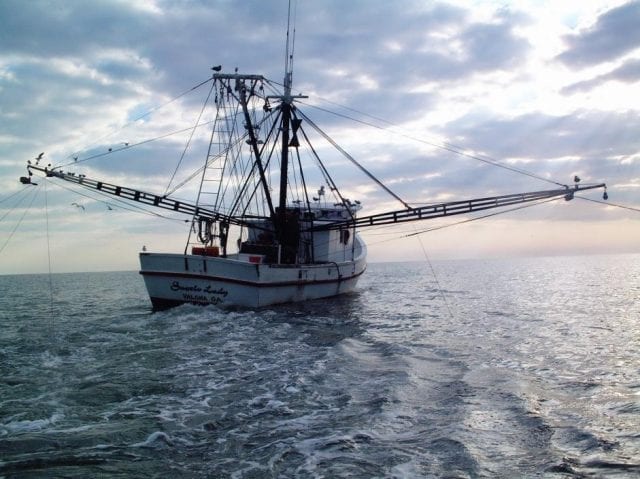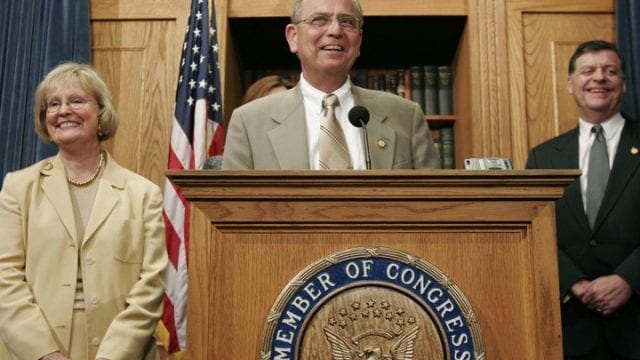
February 14, 2014. Washington. (ONN) Greenpeace is taking a stand on overfishing America’s coastal waters by giant corporate fisheries. Opposing them, GOP Congressman Doc Hastings has prepared a nice good-bye present for his constituents in the form of proposed legislation that would give control over regulating overfishing to the corporations that we’re guilty of it in the first place.
“Right now, US Representative Doc Hastings, the Chair of the House Natural Resources Committee, has introduced legislation to amend the Magnuson-Stevens Act,” Greenpeace Senior Oceans Campaigner Phil Kline warned supporters, “This new proposal would turn back the clock on the all the progress we’ve made towards protecting our oceans in the last two decades!”
Magnuson-Stevens Act

The Magnuson-Stevens Act was first passed in 1976 and among other things, paved the way for US regulators to limit overfishing in US waters. The law has been revised a handful of times since then, roughly every ten years. Greenpeace notes the impressive success the oversight has had on America’s vanishing fish populations over the past decade and a half.
“The number of fish populations subject to overfishing has decreased from 72 in 2000 to 26 in 2013,” Greenpeace and Kline tout, “And rebuilding plans have led to the restoration of 34 populations, including Pacific lingcod and South Atlantic black sea bass, since 2000.” The environmental activists warn that passing the Hastings ‘Empty Oceans Act’ would reverse all the progress made by the struggling domestic fish populations.
2014 Re-authorization of Magnuson-Stevens

Yesterday, Rep. Doc Hastings (R-WA) announced he was retiring this year and would not seek re-election in 2014. “Last Friday, I celebrated my 73rd birthday,” the Congressman’s statement read, “And while I have the ability and seniority to continue serving Central Washington, it is time for the voters to choose a new person with new energy to represent them in the people’s House.”
One of Rep. Hasting’s final acts was to introduce the 2014 ‘Draft Proposal to Reauthorize the Magnuson-Stevens Fishery Conservation and Management Act.’ Not only does the proposed legislation give the fisheries the power to set or eliminate the limits currently protecting the devastated fish populations from overfishing, it specifically authorizes the corporations to set the limits based on the “economic impact” the limits have, assumedly, on their corporate profits.
Proposed Text

The proposal unveiled by House Natural Resources Committee Chairman Hastings lists specific items to be included in the Bill. It also includes an email address for people to voice their opinion to the House Committee during the open public comment period.
‘The Natural Resources Committee has held eight hearings over the past three years related to fisheries management and the reauthorization of the Magnuson-Stevens Act,’ the House website says, ‘Members of the public interested in commenting on this draft proposal can email magnusonstevens@mail.house.gov.’
The proposed language also included the following items being proposed for inclusion in the new Magnuson-Stevens Act of 2014. They include (from the House Committee on Natural Resources):
- Provide flexibility for fishery managers when rebuilding depleted fisheries
- Provide flexibility for fishery managers when setting annual catch levels
- Provide more transparency for fishermen and others in both science and management
- Provide more predictability and stability for fishermen and fishery-dependent communities
- Allow fishery managers to take the economic impact of their decisions into account when setting harvest levels and developing rebuilding plans
- Allow fishery managers to take environmental conditions into account when establishing harvest levels and developing rebuilding plans
- Allow fishermen in regions where catch share programs have been controversial to have a say in whether a new catch share program will be implemented and to be provided better information when considering such a program
- Provide a schedule for obtaining better fishery-dependent and fishery-independent data especially for data-poor fisheries and provide greater protection for confidential information submitted to regulatory agencies
- Authorize appropriations for an additional five fiscal years at current funding level
Greenpeace isn’t waiting to take a stand against some of the above proposals from the powerful House Committee Chair himself. ‘This proposal’s drastic changes would roll back recent conservation gains and undermine the role of science in fishery management,’ the activists’ online petition warns. The Greenpeace petition calls it, ‘a road map to devastating our ocean fisheries and local economies.’





